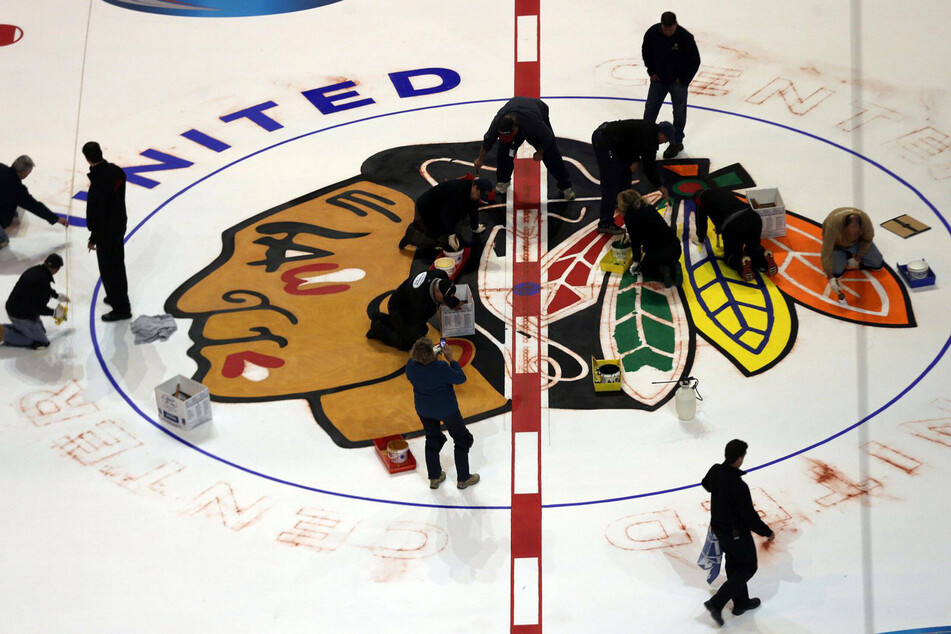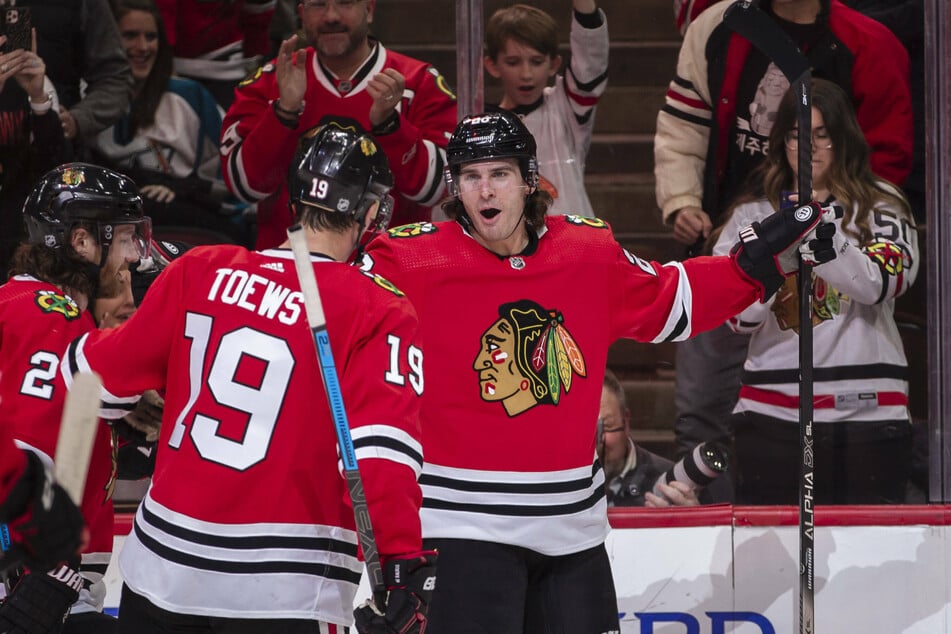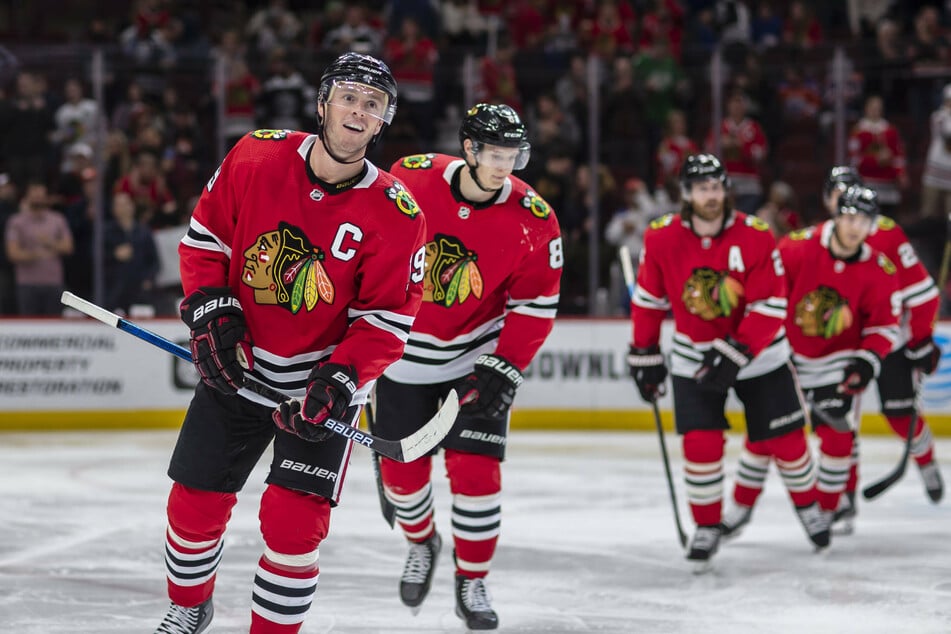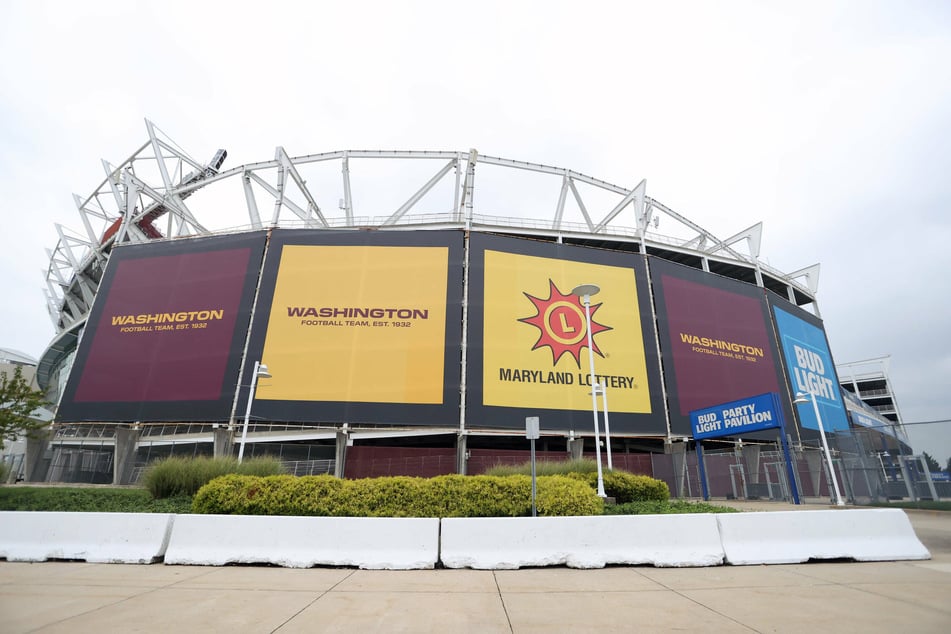Chicago Blackhawks won’t change their nickname, new CEO says
Chicago, Illinois – It was only matter of time before the issue of the Chicago Blackhawks’ nickname and their Indian head logo resurfaced as a point of contention.

When Washington’s NFL team announced in July that they were dropping the Redskins nickname, the Hawks issued a statement saying they weren’t changing theirs, the namesake of Sauk and Fox Nation war leader Black Hawk.
On Sunday, the Cleveland Indians confirmed they would be removing "Indians" after next season, becoming the latest professional sports team with a Native American-themed nickname to have a change of heart about a long-held mascot.
That night, "Blackhawks" and Kansas City’s "Chiefs" began trending on Twitter.
Native American advocates have said the name and images are stereotypical, racist and harmful to their communities.
So with the Hawks naming Danny Wirtz as CEO on Wednesday, it’s no surprise he was asked Thursday to address whether the organization is considering a name change now that it’s being run by a younger generation of Wirtzes.
"I respect the decision the Cleveland Indians made to go down that path," Wirtz said, "but we continue to deepen our commitment to upholding our namesake and our brand, the work we’ve been doing over the last several months and expanding and deepening conversations and partnerships within the Native community."
Some praise the Blackhawks' educational and cultural programming initiatives

The Hawks have banned fans wearing Native American-style headdresses and doing war chants at the United Center, and recently they instituted programming related to Native American culture, such as adding educational resources, forming artist partnerships and introducing a land acknowledgement, which recognizes local "Indigenous peoples and their traditional territories" in a formal statement that will be read at home games and other public events.
"We continue to feel really positive about the types of work we can do, the way in which we can be better stewards of the namesake and the history and to use our platforms to be educators, not only for our fans but for our internal teams, and making sure that we provide that reverence and respect that we talk about," Wirtz said.
"But we wanted to come to life in everything we do across so many dimensions, both from a marketing standpoint, from a learning and education standpoint, and from, by all means, a community standpoint in ways in which we have integrated Native voices into a lot of those efforts.
"So we’re going to continue down this path and continue to hold our brand up in the highest levels of honor."
Some Indigenous advocates have praised the Hawks’ efforts.
Joe Podlasek, CEO of the Trickster Cultural Center in Schaumburg, said earlier this year that his partnership with the Hawks over the last decade has greatly improved fans’ awareness and sensitivity to Native American issues.
"It’s been a great relationship about cultural understanding, having our Native veterans as part of their veterans on the ice," Podlasek, who is Ojibwe and Polish, said in July. "They’ve been doing so much behind the scenes."
"I'm not a caricature," indigenous activist says.

Other Native American representatives have said nothing short of a name and logo change is acceptable.
"I appreciate sports teams attempting to reach out to Native folks and talk to them, but what really boils down to (for them is), 'We’re not going to change the name,' " Vincent Schilling, associate editor of Indian Country Today – the nation’s leading news outlet for Native Americans – said Thursday. "But we’ll have conversations with Native people to quantify and qualify our actions."
"Bottom line: We’re not going to change the name right now until it costs us money."
Schilling, who is Akwesasne Mohawk, said the former Washington Redskins (now Washington Football Team) launched similar initiatives, such as starting a charitable foundation to help Native American communities, but four months after they bowed to public and corporate pressure and abandoned the Redskins nickname, they withdrew financial support for the nonprofit.
Schilling acknowledged that some in the Native American community don’t find the name "Blackhawks" to be derogatory, but he joined other advocates who have called for the team to discontinue using the face-painted, feather-wearing mascot that adorns the front of the Hawks sweater.
"Dump it. Just stop."

"That Indian head has got to go," Schilling said. "Dump it. Just stop. I’m not a caricature. I’m just tired of these consistent arguments that are just long-winded, lengthy justifications to stereotype Native people.
"No matter how many words you throw at something, the bottom line (is) you’re still stereotyping Native people with a big Indian cartoon head on a jersey. People still walk up to me and say, 'You don’t look Native American,' because of those pictures. Dump it."
Schilling is based in Virginia Beach, Virginia, in the traditional footprint of the Washington Football Team’s fan base, so he has heard plenty of arguments – and even physical threats – about Native American-themed mascots.
In his view, resistance to change stems from a familial attachment to games on TV, trips to the stadium, and other fond memories of rooting for the home team.
"I’m not cutting down the athletes, I’m not cutting down the camaraderie, I’m not cutting down the wonderful times you may have shared with fellow friends or family at a game," he said. "I’m asking people to separate these concepts of camaraderie and excitement and sharing of the win (by) your team, separate that out from the racially insensitive connotations of the team’s name and/or stereotypical logos of Native people."
"The two are not part of the same pile."
Cover photo: imago images / ZUMA Wire